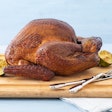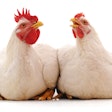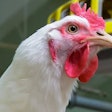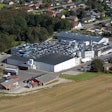“In the year ahead, the assault on modern farming and ranching [practices] will be greater than in the last two decades,” said Dr. Steve Kopperud, senior vice president, Policy Directions, Inc. Kopperud spoke at the Simmering Issues workshop at the Midwest Poultry Federation Trade Show and Convention.
He said that animal agriculture may not be losing the battle today, but “we are barely holding our own.”
The animal well-being movement has crystallized within the Humane Society of the U.S. (HSUS), according to Kopperud. He said that HSUS claims to have 10 million members and has an annual budget of between $110 and $120 million. HSUS president, Wayne Pacelle, has said that he will make HSUS into “the NRA of the animal rights movement.”
Kopperud said that the poultry industry, growers included, must “wake up” to the fact that this battle with activist groups will not be won or lost by registered lobbyists in Washington, D.C. He said that this is a battle for the hearts and minds of consumers, legislators and the media. “The most credible soldiers on this battlefield are farmers and ranchers,” he said. “It is time to speak out.”
“It makes no sense that while other industries are praised and congratulated for their progressive embracing of technology for improvement and cost control, agriculture is criticized,” Kopperud said. “We’re the only industry that’s critical to every citizen’s quality of life that’s increasingly asked to go backward in time, back to the days of slog through the mud agriculture, with its high costs of production, high animal disease and mortality rates, lower quality and higher consumer costs. We must refuse to go; we can not afford to retreat. We must continue to move forward, talking to the folks who buy our products – whether processor, retailer or the ultimate consumer.”
“That will take hands-on work from folks like you,” Kopperud said. He suggested that everyone involved in animal agriculture, including poultry growers, needs to become part of grass roots efforts to educate and lobby their representatives in local, state and federal governments. Activist groups are telling one side of the story; it is up to the people who raise the animals to tell the other side of the story, according to Kopperud.


















